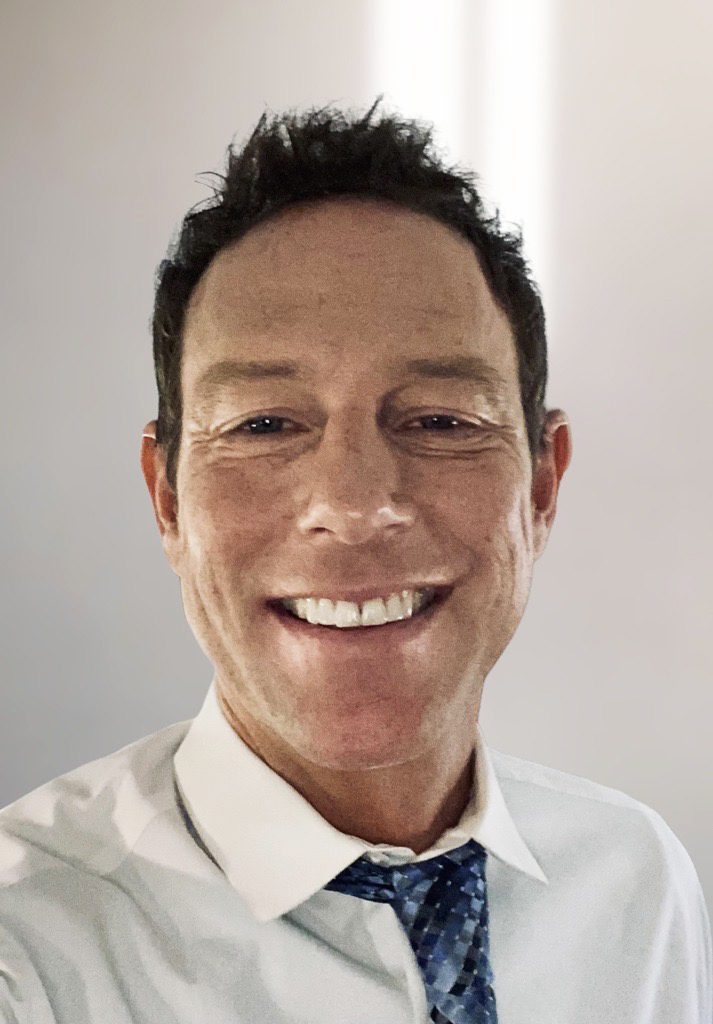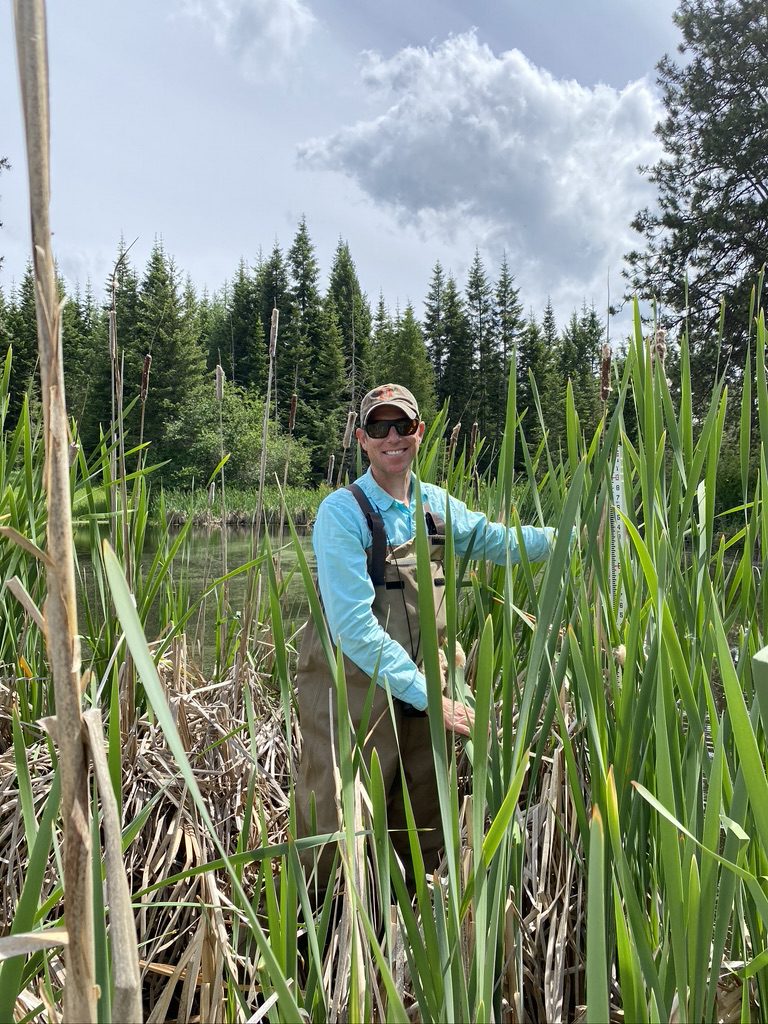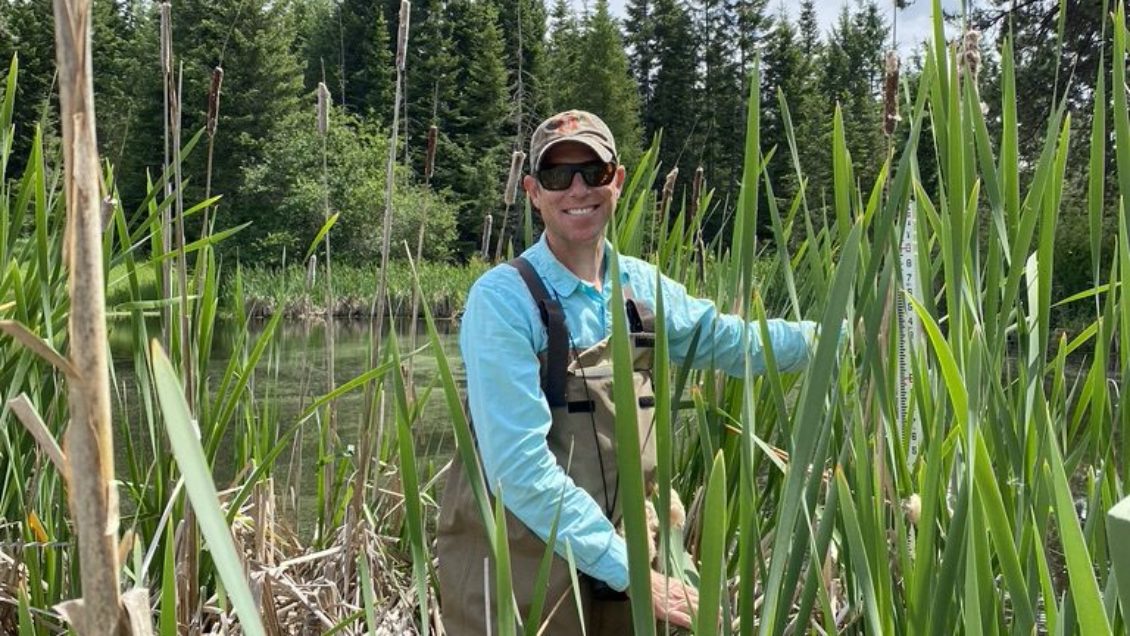Mažeika Patricio Sulliván firmly believes in the aphorism that a rising tide lifts all boats, and he plans to bring that philosophy with him as he takes charge at a place where the influence of the tides is ever present.
In the landscape of academia, where competition can be just as constant, Sulliván said his vision is to create an environment for collaboration, teamwork and shared success in his new role as director of Clemson University’s Belle W. Baruch Institute of Coastal Ecology and Forest Science (BICEFS).
“I enjoy seeing others succeed, and I hope to facilitate that as director of Baruch,” said Sulliván, who previously served as director of the Shiermeier Olentangy River Wetland Research Park and as professor, associate director and chief diversity officer in The Ohio State University’s School of Environment and Natural Resources.
In his new position, Sulliván will oversee research efforts at BICEFS, one of six Research and Education Centers (RECs), collectively known as the Clemson Experiment Station, located strategically throughout South Carolina. He replaces John Andrae, who served as interim director since 2021.
Clemson College of Agriculture, Forestry and Life Sciences (CAFLS) Associate Dean of Research Paula Agudelo said Sulliván is recognized by his colleagues for excellence in leadership and teaching and, to date, has published over 70 peer-reviewed journal articles and authored several book chapters.
“Dr. Sulliván also brings significant experience in research having secured $8M in contracts and grants to date,” said Clemson College of Agriculture, Forestry and Life Sciences Associate Dean of Research Paula Agudelo. “Dr. Sulliván is a highly active scholar with many contributions to ecological and environmental science, and is deeply engaged in promoting equity, inclusion and diversity in ecology and natural resources through teaching, research and service activities.”

BICEFS is a coastal research center located on Hobcaw Barony, a 16,000-acre undeveloped tract along the Waccamaw Neck, where scientists have studied the coastal environment for more than 50 years.
While most of Clemson research efforts at its RECs focus primarily on agriculture and agribusiness, BICEFS focuses on the environmental impact of changing land-use patterns, coastal natural resource conservation, forestry, water quality, biodiversity and watershed management.
“With Dr. Sulliván’s background and reputation, I’m excited to welcome him to Clemson and for what he can accomplish at the Baruch Institute. The facilities there provide our scientists with unique research opportunities in a coastal environment with high-salinity estuary marshes, brackish water and freshwater swamps,” said Clemson Forestry and Environmental Conservation (FEC) Department Chair Todd Petty. “That allows us to study such a variety of coastal ecosystems — forested, riparian and wetland — and take advantage of all those different natural elements together on one undeveloped tract of land. Dr. Sulliván’s background in conducting and coordinating broad wetland research programs will help our scientists take full advantage of those opportunities.”
“The focus of the Institute on coastal forest and wetland ecology is of growing national importance as coastlines come under increasing pressure from development and climate change,” Petty added.
In addition to Hobcaw Barony, Clemson scientists at Baruch have memoranda of understanding with public and private organizations that grants access to more than 80,000 acres of coastal lands for collaborative research and education programs.
For his part, Sulliván plans to make the most of every single acre.
“One overarching idea that I will explore with BICEFS faculty and staff is how a ‘ridge-to-reef’ approach may help coalesce and elevate many of the current and new strengths of BICEFS,” he said. “This holistic approach seeks to understand and protect coastal ecosystems by integrating science and conservation from the uplands (‘ridge’) to nearshore marine ecosystems (‘reef’).”
Sulliván said the position attracted him for many reasons, including the Institute’s rich history, strong past leadership and the opportunity to work with its team of scientists, Extension professionals and natural-resource practitioners.
His scientific career has led him across the continental U.S. and Puerto Rico and internationally to Lithuania and southern Africa.
In 2015-16, he conducted research, teaching and outreach activities based out of the National University of Colombia, Bogotá, as a Fulbright Distinguished Chair in Biodiversity and Sustainable Development and currently has a project in the Colombian Amazon examining environmental controls on biodiversity and sustainable fisheries in Amazon River tributaries and floodplains.

“In broad terms, my research focuses on watershed and coastal ecology and conservation,” Sulliván said. “More specifically, the aim of my research program — the Streams, Rivers and Estuaries (STRIVE) Lab — is to advance our understanding of how elements of both natural environmental variability and global change influence biodiversity, community organization and ecosystem function of linked aquatic-terrestrial systems.”
Much of the research conducted at Baruch aims to inform policymakers in making decisions about things such as land use and urban growth, and this is an area where Sulliván has extensive experience, as well.
In 2014-15, he served on the Environmental Protection Agency’s Science Advisory Board for Review of the Water Body Connectivity Report and the subsequent Proposed Rule (2013-14) related to the Clean Water Act.
Sulliván has also briefed Congress several times on the science around the Clean Water Rule and published policy pieces in Proceedings of the National Academy of Sciences and Science. His op-eds have been published in national outlets such as The Hill, and his research and expertise have been broadly disseminated to the general public by outlets including NPR, CNN, National Geographic, the New York Times and Science News.
“I hope to build on this policy and science communication work to help enhance the great and important work of BICEFS faculty and staff,” he said.
Sulliván, who is active on social media at his Twitter handle, @DrEcoMaz, said his undergraduate training at Dartmouth College in Anthropology and Native American Studies and his own multicultural background has instilled an appreciation of diverse peoples, cultures and points of view and served him well in working with a variety of stakeholders.
“I’ve been fortunate to live in many areas throughout my life, including Vermont and Puerto Rico, New Hampshire, Ohio, Idaho and Colombia,” he said. “I’ve also spent quite a bit of time in Lithuania — which is a beautiful country with a rich and poignant history. Living in all these areas has contributed to the diversity of my experiences and has brought a broad perspective to my science, outreach and leadership.”
Get in touch and we will connect you with the author or another expert.
Or email us at news@clemson.edu

